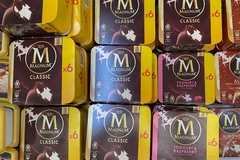
- Industry news
Industry news
- Category news
Category news
- Reports
- Key trends
- Multimedia
- Journal
- Events
- Suppliers
- Home
- Industry news
Industry news
- Category news
Category news
- Reports
- Key trends
- Multimedia
- Events
- Suppliers
Olam International Reports More Than Trebling of Profits in Q1
13 May 2016

13 May 2016 --- Olam International has reported profits more than trebled in the first quarter to S$109.4 million ($80m), helped by lower exceptional chargers relating to the buy-back of bonds and also higher volume sales across its Edible Nuts, Spices and Vegetable Ingredients and Confectionery and Beverage Ingredients divisions.
The Singapore-based commodities company said profit after tax surged from S$32.7m ($24m) to s$109.4m ($80m) on the year.
Olam bought back S$12.5m ($91.1m) high-priced bonds in Q1, compared to S$97.2m ($71m) the year previously, helping profits.
Revenue was up from S$4.32bn ($3.2bn) to S$4.76bn ($3.5bn) in the period.
Olam’s co-founder & group CEO Sunny Verghese said: “Our consistent performance amid challenging market conditions and uneven global growth reflects our sound business fundamentals and our diversified portfolio.

“We are confident about our growth prospects, on the back of our acquisition of ADM’s cocoa processing assets, BUA Group’s wheat milling assets, our entry into the animal feed business in Nigeria and our new joint venture with Mitsubishi Corporation in Japan."
“These initiatives will open up new opportunities and revenue streams as we continue to execute on our differentiated strategy.”
Broken down by division, across Edible Nuts, Spices & Vegetable Ingredients volumes were up 28 percent for nearly all products within the division, with a particularly strong showing from its peanut business.
But revenues were down 12.4 percent amid price falls.
EBITDA (Earnings before Interest, Tax, Depreciation and Amortisation) fell 27 percent as declining almond prices and lower market prices and margins for tomato processing offset an improved contribution from cashew, sesame, spices and vegetable ingredients during the quarter.
Across the Confectionery & Beverage Ingredients division, volumes were up 11.2 percent while revenues grew 31.6% on the higher volumes as well as higher cocoa prices. EBITDA grew 26.2% with increased contribution from its cocoa processing assets and improved performance from coffee sales.
The Food Staples & Packaged Foods division reported an 8.1 percent year-on-year volume increase driven by the West Africa wheat milling business and steady growth in the Dairy, Rice, and Palm and Sugar supply chain businesses.
Revenues increased by 5.5 percent despite lower prices for most commodities within the segment. EBITDA increased by 7.1 percent with improved performance across the majority of the division.
The Dairy, Rice and Palm supply chain businesses, wheat milling operations in Africa and Dairy farming operations in Russia showed growth in their overall EBITDA.
Dairy farming in Uruguay saw improved operational performance and lower costs although some of these gains were offset by the negative impact from lower milk prices. Sales were flat across Packaged Foods and Sugar over the period.
The Industrial Raw Materials division reported a 9.4 percent growth in volumes as all products reported higher volumes. However, revenues declined by 8.9 percent as lower prices across all commodities within this segment offset the higher volumes.
Despite lower revenue, EBITDA improved by 11.5% based on the performance of Cotton and Wood Products businesses.
Looking forward, Olam said: "The long-term trends in the agri-commodity sector remain attractive, and Olam is well positioned to benefit from this as a core global supply chain business with selective integration into higher value upstream and mid/downstream segments."
“Olam believes its diversified and well-balanced portfolio with leadership positions in many segments provides a resilient platform to navigate current uncertainties in global markets."
All content and features on this website are copyrighted with all rights reserved. The full details can be found in our privacy statement
Subscribe to our newsletters
By continuing to browse our site you agree to our Privacy Statement










